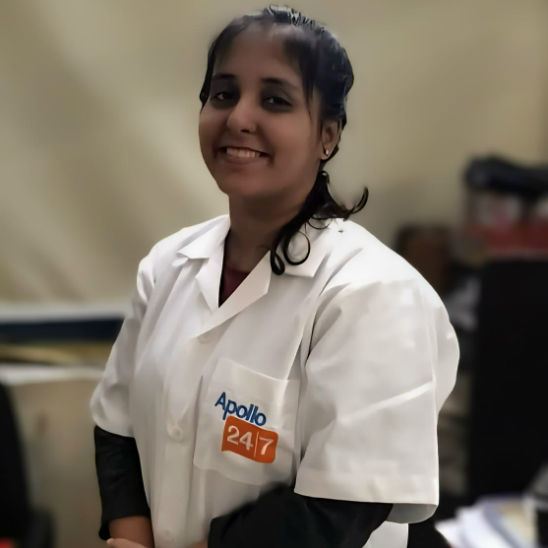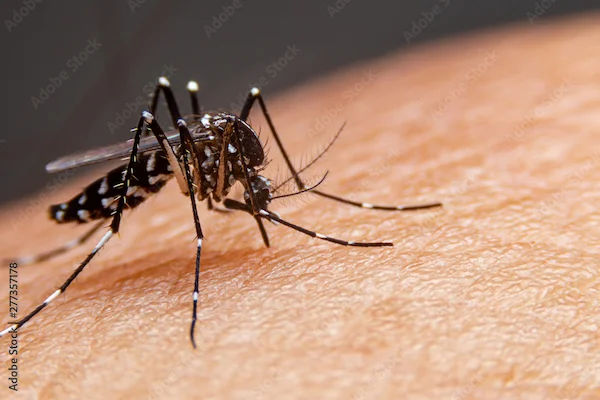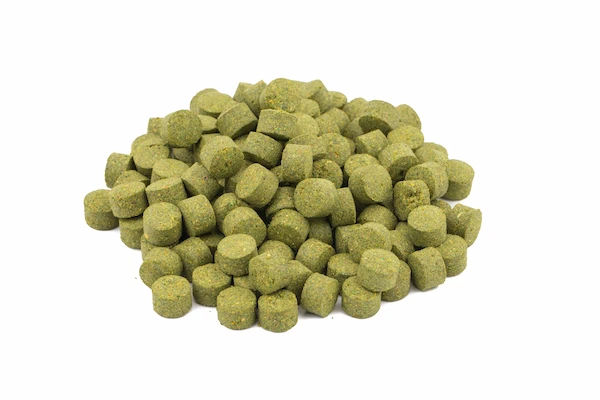How Air Pollution Irritates Your Eyes: A Complete Protection Guide
Know about air pollution, its effect on eyes, primary pollutants, particulate matter, exact effect of pollutants on eyes, effective home remedies and more.

Written by Dr. Shaik Abdul Kalam
Reviewed by Dr. J T Hema Pratima MBBS, Fellowship in Diabetes Mellitus
Last updated on 13th Jan, 2026

Introduction
In cities across the globe, a hazy skyline is often accompanied by an unmistakable sting in the eyes. This isn't just your imagination; it's a direct biological response to the cocktail of chemicals and particles suspended in our air. Air pollution is a well-documented culprit for respiratory issues, but its impact on ocular health is equally significant and frequently overlooked. If you've ever experienced redness, itching, or a gritty feeling in your eyes after a day out in smog, you've personally felt the effects of pollution on your delicate eye structures.
This guide delves deep into the mechanics of how air pollution causes eye irritation, identifying the specific offenders and the symptoms they trigger. More importantly, we will equip you with a robust arsenal of practical, effective strategies to shield your eyes, soothe existing discomfort, and understand when it's crucial to seek professional medical advice.
What's in the Air? The Primary Pollutants That Hurt Your Eyes
Not all pollution is created equal. To understand how to defend yourself, you must first know the enemy. The main agents responsible for eye irritation are microscopic and pervasive.
Consult a General Practitioner for Personalised Advice
Particulate Matter (PM2.5 and PM10): The Tiny Abrasives
These are tiny particles or droplets in the air. PM10 (particles with a diameter of 10 micrometres or less) can irritate the eyes, but PM2.5 (2.5 micrometres or less) is even more dangerous due to its ability to penetrate deeper. Think of them as microscopic pieces of dust, dirt, soot, or smoke that physically scrape against the surface of your eye, causing immediate dryness and a gritty sensation.
Ground-Level Ozone (O3): The Chemical Irritant
Unlike the protective ozone layer high in the atmosphere, ground-level ozone is a harmful pollutant formed by the reaction of sunlight with emissions from vehicles and industries. It is a powerful oxidant that can cause a chemical burn on the sensitive tissues of the eyes, leading to redness, burning, and watering—a primary reason for symptoms of smog eyes.
Nitrogen Dioxide (NO2) and Sulfur Dioxide (SO2)
These gases, primarily from vehicle exhaust and industrial fuel combustion, dissolve in the tear film on the surface of your eye to form weak acids. This acidic environment disrupts the natural pH balance, stings, and exacerbates conditions like allergic conjunctivitis.
How Exactly Does Pollution Cause Eye Irritation? The Science Explained
The process is a two-pronged attack: physical abrasion and chemical inflammation.
Compromising the Tear Film
Your eyes are protected by a complex, three-layered tear film (oil, water, and mucus). This film keeps the eye lubricated, smooth, and clear. Pollution particles can disrupt this delicate balance. They cause the watery layer to evaporate more quickly, leading to dry eyes, while the larger particles can physically disrupt the smooth oil layer.
Triggering Inflammatory Responses
When pollutants like ozone or nitrogen dioxide come into contact with the ocular surface, they are recognised as foreign invaders. This triggers the body's immune response, releasing inflammatory mediators. These chemicals cause blood vessels in the conjunctiva (the clear membrane covering the white of the eye) to dilate, leading to redness, swelling, itching, and that characteristic burning sensation. This is your body trying to flush out the irritants.
Common Symptoms of Pollution-Related Eye Irritation
The signs are often immediate and unmistakable. If you're suffering from pollution-related eye issues, you might experience:
- Redness and bloodshot eyes
- A persistent burning or stinging sensation
- Itchiness that makes you want to rub your eyes (which you should avoid!)
- A feeling of having a foreign body or grit in the eye
- Watery eyes as the body attempts to flush out irritants
- Dryness and discomfort, especially while wearing contact lenses
- Swollen eyelids
- Blurred vision that clears with blinking
Beyond Irritation: Long-Term Risks for Eye Health
While the immediate symptoms are uncomfortable, chronic exposure to high levels of air pollution poses more serious, long-term risks. Studies have linked prolonged exposure to an increased incidence of Dry Eye Syndrome, a chronic condition where the eyes don't produce enough quality tears. There is also growing evidence suggesting a correlation between air pollution and the development of more severe conditions like glaucoma, age-related macular degeneration (AMD), and chronic conjunctivitis. Protecting your eyes daily is an investment in your long-term vision health.
Your Shield Against Smog: Practical Prevention Strategies
You can't control the air quality of an entire city, but you can control your exposure and fortify your defenses.
Monitor and Adapt: Using the AQI to Your Advantage
Make checking the Air Quality Index (AQI) a daily habit (via apps or weather websites). On days when the AQI is poor (often coded orange, red, or purple), limit your time outdoors, especially during peak traffic hours. Plan strenuous outdoor activities for days when the air is clearer.
Protective Eyewear: More Than Just Style
Wearing close-fitting sunglasses or clear anti-pollution glasses creates a physical barrier that significantly reduces the amount of particulate matter reaching your eyes. Wraparound styles offer the best protection. A wide-brimmed hat can also help shield your eyes from above.
The Role of Lubricating Eye Drops ("Artificial Tears")
How to protect eyes from pollution often starts with moisture. Use preservative-free lubricating eye drops throughout the day, especially after returning from outdoors. They help rinse away irritants and replenish your natural tear film. Look for drops labelled for dry eye relief.
Diet and Hydration: Building Internal Defense
A diet rich in antioxidants (Omega-3 fatty acids, Vitamins A, C, and E) can help strengthen your eyes' natural defense systems against inflammatory damage. Stay well-hydrated to support overall tear production.
Soothing the Burn: Effective Home Remedies and Treatments
If your eyes are already irritated, try these soothing steps:
- Cold Compress: Apply a clean cloth soaked in cold water to closed eyelids for 5-10 minutes to reduce inflammation and soothe burning.
- Saline Rinse: Gently rinse your eyes with a sterile saline solution to physically flush out pollutants.
- Blink More: Make a conscious effort to blink fully and frequently, especially when using screens, to spread tears evenly.
- Stay Indoors: The best remedy is to remove yourself from the polluted environment and allow your eyes to recover.
When to Stop Self-Care and Consult a Doctor
While home remedies for itchy eyes from pollution can be effective for mild cases, certain symptoms warrant professional attention. If your symptoms are severe, include pain, significant vision changes, or persist beyond a few days of self-care, it is crucial to consult an eye doctor. You could be dealing with a more significant infection or abrasion that requires prescription medication. For a quick and professional consultation, you can consult a doctor online with Apollo24|7 to get expert advice without delay.
Conclusion
Air pollution doesn’t just harm your lungs; it can also take a serious toll on your eyes, causing discomfort in the short term and increasing risks of long-term damage. By understanding the pollutants responsible and their effects, you can take proactive steps to shield your eyes from harm. Simple habits like monitoring the AQI, wearing protective eyewear, staying hydrated, and using lubricating drops can make a big difference. Protecting your eyes today is an investment in preserving your vision and overall well-being for the future.
Consult a General Practitioner for Personalised Advice
Consult a General Practitioner for Personalised Advice

Dr. Thorana Prakash M
General Physician
2 Years • MBBS
Bengaluru
PRESTIGE SHANTHINIKETAN - SOCIETY CLINIC, Bengaluru

Dr. Utsa Basu
Diabetologist
14 Years • MBBS , MD
Barasat
Diab-Eat-Ease, Barasat
(75+ Patients)

Dr. Arif Ahmed
General Physician/ Internal Medicine Specialist
9 Years • MBBS, MD (Genl. Med.)
Kolkata
MCR SUPER SPECIALITY POLY CLINIC & PATHOLOGY, Kolkata

Dr. Rupam Chowdhury
Orthopaedician
10 Years • MBBS, DNB (Ortho.)
Kolkata
MCR SUPER SPECIALITY POLY CLINIC & PATHOLOGY, Kolkata

Dr. Ashita Kuruvilla
General Physician/ Internal Medicine Specialist
7 Years • MBBS
East Midnapore
VIVEKANANDA SEBA SADAN, East Midnapore
Consult a General Practitioner for Personalised Advice

Dr. Thorana Prakash M
General Physician
2 Years • MBBS
Bengaluru
PRESTIGE SHANTHINIKETAN - SOCIETY CLINIC, Bengaluru

Dr. Utsa Basu
Diabetologist
14 Years • MBBS , MD
Barasat
Diab-Eat-Ease, Barasat
(75+ Patients)

Dr. Arif Ahmed
General Physician/ Internal Medicine Specialist
9 Years • MBBS, MD (Genl. Med.)
Kolkata
MCR SUPER SPECIALITY POLY CLINIC & PATHOLOGY, Kolkata

Dr. Rupam Chowdhury
Orthopaedician
10 Years • MBBS, DNB (Ortho.)
Kolkata
MCR SUPER SPECIALITY POLY CLINIC & PATHOLOGY, Kolkata

Dr. Ashita Kuruvilla
General Physician/ Internal Medicine Specialist
7 Years • MBBS
East Midnapore
VIVEKANANDA SEBA SADAN, East Midnapore
More articles from General Medical Consultation
Frequently Asked Questions
Can air pollution cause permanent damage to my eyes?
While rare from short-term exposure, chronic, long-term exposure to high levels of air pollution has been linked in studies to an increased risk of permanent conditions like chronic Dry Eye Syndrome, glaucoma, and age-related macular degeneration. Consistent protection is important for long-term eye health.
What are the best eye drops for pollution irritation?
Preservative-free artificial tears or lubricating eye drops are generally the best choice. They are gentle and can be used frequently to rinse and soothe the eyes without the risk of irritation from preservatives. Avoid drops that primarily “get the red out,” as these can cause rebound redness with long-term use.
Are there specific anti-pollution glasses that work?
Yes, close-fitting, wraparound sunglasses or clear glasses provide the best barrier. Some brands specifically market 'anti-pollution' glasses with seals designed to keep particles out. The most important factor is the fit—they should sit snugly against your face.
Why do my eyes feel worse when I wear contact lenses in polluted areas?
Contact lenses can trap pollutant particles against the surface of your eye, prolonging exposure and irritation. They can also absorb chemicals and interfere with the tear film, leading to increased dryness and discomfort. It's best to wear glasses on high-pollution days.
How can I protect my children's eyes from air pollution?
Children's eyes are even more sensitive. Employ the same strategies: limit outdoor play on bad air days, encourage them to wear hats and sunglasses, and ensure they wash their hands and face after coming indoors to avoid rubbing pollutants into their eyes.




